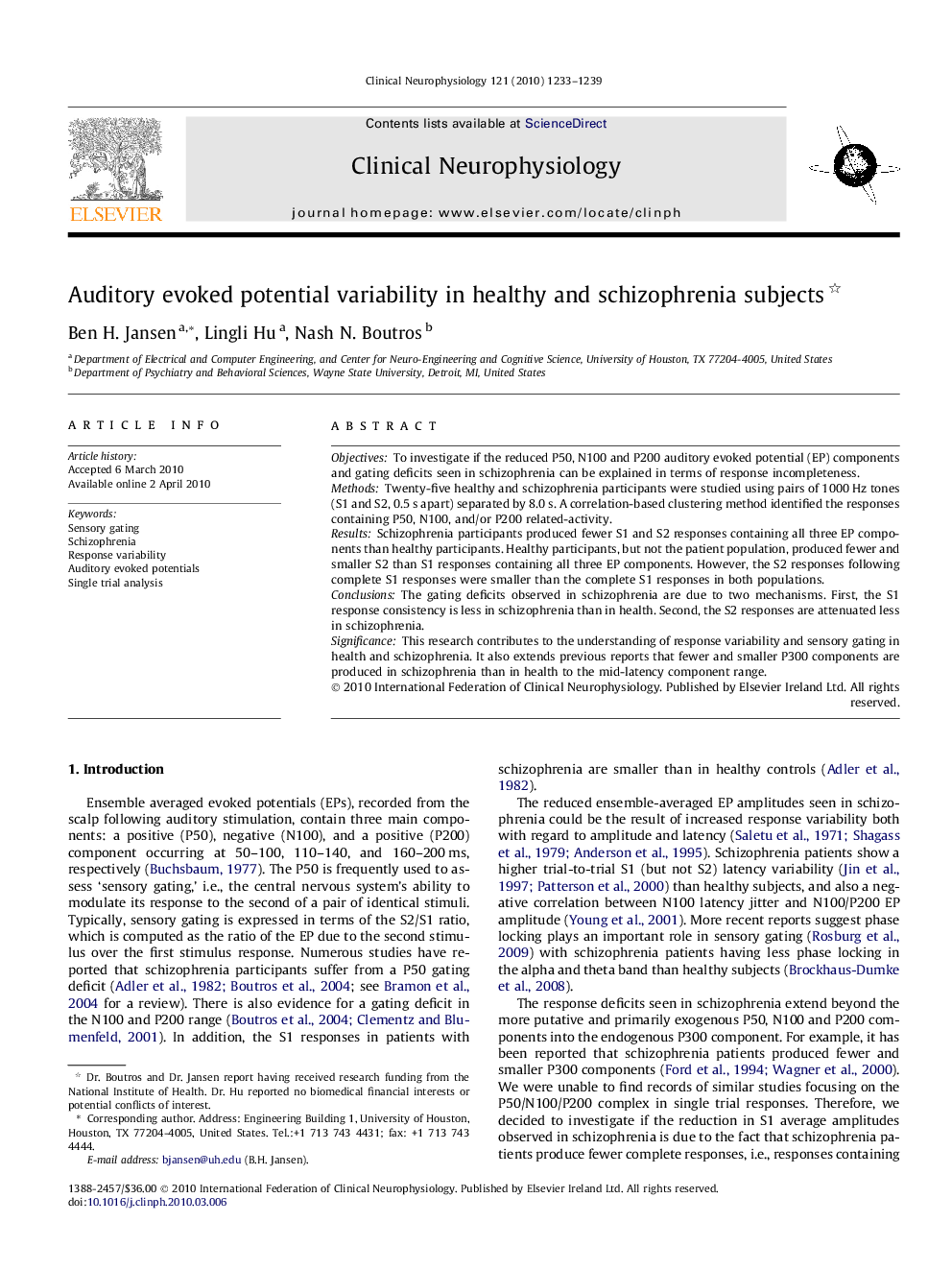| Article ID | Journal | Published Year | Pages | File Type |
|---|---|---|---|---|
| 3044845 | Clinical Neurophysiology | 2010 | 7 Pages |
ObjectivesTo investigate if the reduced P50, N100 and P200 auditory evoked potential (EP) components and gating deficits seen in schizophrenia can be explained in terms of response incompleteness.MethodsTwenty-five healthy and schizophrenia participants were studied using pairs of 1000 Hz tones (S1 and S2, 0.5 s apart) separated by 8.0 s. A correlation-based clustering method identified the responses containing P50, N100, and/or P200 related-activity.ResultsSchizophrenia participants produced fewer S1 and S2 responses containing all three EP components than healthy participants. Healthy participants, but not the patient population, produced fewer and smaller S2 than S1 responses containing all three EP components. However, the S2 responses following complete S1 responses were smaller than the complete S1 responses in both populations.ConclusionsThe gating deficits observed in schizophrenia are due to two mechanisms. First, the S1 response consistency is less in schizophrenia than in health. Second, the S2 responses are attenuated less in schizophrenia.SignificanceThis research contributes to the understanding of response variability and sensory gating in health and schizophrenia. It also extends previous reports that fewer and smaller P300 components are produced in schizophrenia than in health to the mid-latency component range.
